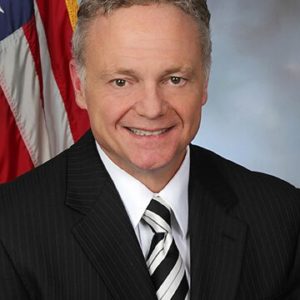 As the U.S. has continued to fight Covid-19 over the past eight months, the working world has shown it is resilient. Employers, commentators and thought leaders have outlined reforms to accommodate remote work that include everything from remotely managing direct reports to avoiding back and neck pain with a proper home office setup. Yet in all of these discussions about how to optimize the virtual office for employees, one key group is overlooked: people with disabilities. This month, disability advocates and community members celebrate the 75th anniversary of National Disability Employment Awareness Month (NDEAM). Now more than ever, businesses need to invest in accommodating and supporting the millions of people with disabilities who help keep our country strong.
As the U.S. has continued to fight Covid-19 over the past eight months, the working world has shown it is resilient. Employers, commentators and thought leaders have outlined reforms to accommodate remote work that include everything from remotely managing direct reports to avoiding back and neck pain with a proper home office setup. Yet in all of these discussions about how to optimize the virtual office for employees, one key group is overlooked: people with disabilities. This month, disability advocates and community members celebrate the 75th anniversary of National Disability Employment Awareness Month (NDEAM). Now more than ever, businesses need to invest in accommodating and supporting the millions of people with disabilities who help keep our country strong.
Covid-19 put enormous stress on our nation’s supply of critical products and our ability to produce them. Take yourself back six months to when America’s food supply was at risk and hospitals were running out of essential medications and other supplies and reusing masks. Now, the situation appears to have stabilized thanks to a talented workforce that is keeping our country supplied. A portion of that workforce is composed of people who are blind or visually impaired, who work behind the scenes providing essential products to keep the country safe and aid in our nation’s recovery.
Despite their willingness to answer our nation’s call to service against this pandemic, people with disabilities face significant barriers to employment. Most people—and, unfortunately, most businesses—are unaware of the obstacles people with disabilities face in the workplace. When the national unemployment rate dipped below 10% in August after months of volatility, people with disabilities remained far more likely to be unemployed than their non-disabled peers. Among working-age Americans who are blind, nearly 70% are not employed. That figure is, in large part, the result of a lack of awareness of how easy and inexpensive it is to accommodate employees with disabilities. This lack of awareness hurts the long-term economic and personal independence of people who are blind as well as our national economy.
National Industries for the Blind (NIB) works with a nationwide network of nearly 100 associated nonprofit agencies to find jobs for people who are blind and ensure they have the skills to be successful in the workplace. These agencies are a shining example of organizations that adapted to Covid-19 and have rapidly implemented new safety protocols and assistive technologies to prepare their employees for remote or in-person, socially distanced work. In addition, some adapted their businesses to support our nation’s Covid-19 response, changing operations to produce cleaning supplies, personal protective equipment and other important essentials. They met the needs of their employees with disabilities and our country as a whole with vigor and purpose.
Businesses should take the time to learn about misconceptions and understand the benefits of hiring people with disabilities and people who are blind. Employees who are blind are loyal—the turnover rate for people who are blind is nearly zero, compared to the nearly 20% turnover rate among people without disabilities. Additionally, employees who are blind are highly skilled and capable of performing jobs in many industries, as proven by NIB and its nonprofit associated agencies. From operating cutting-edge manufacturing equipment to managing global supply chains to working in knowledge-based professional services fields, employees who are blind are an asset.
Those necessary investments in assistive technologies are far less expensive than one might assume. For example, accessibility is built-in to much of today’s technology and simply needs to be “switched on,” and other accommodations can usually be made at minimal cost—less than $500 on average. Secondly, a great deal of the work needed to support employees with disabilities involves educating employees who do not have disabilities. Organizations can proactively train managers on how to onboard, support and manage employees with disabilities and provide career development opportunities for them.
These changes are urgently needed, and there’s no better time to embrace them than now, during the 75th anniversary of NDEAM. This fall, amidst one of the most challenging situations our country has faced, NDEAM serves as a reminder to employers across all industries of the importance and benefits of creating accessible and inclusive workplaces. Now, as our nation continues the battle against Covid-19, we need to work together to provide sustainable, accessible employment opportunities to this largely untapped workforce—for the good of people with disabilities, and for the good of our country.

Chief Executive Group exists to improve the performance of U.S. CEOs, senior executives and public-company directors, helping you grow your companies, build your communities and strengthen society. Learn more at chiefexecutivegroup.com.
0

1:00 - 5:00 pm
Over 70% of Executives Surveyed Agree: Many Strategic Planning Efforts Lack Systematic Approach Tips for Enhancing Your Strategic Planning Process
Executives expressed frustration with their current strategic planning process. Issues include:
Steve Rutan and Denise Harrison have put together an afternoon workshop that will provide the tools you need to address these concerns. They have worked with hundreds of executives to develop a systematic approach that will enable your team to make better decisions during strategic planning. Steve and Denise will walk you through exercises for prioritizing your lists and steps that will reset and reinvigorate your process. This will be a hands-on workshop that will enable you to think about your business as you use the tools that are being presented. If you are ready for a Strategic Planning tune-up, select this workshop in your registration form. The additional fee of $695 will be added to your total.

2:00 - 5:00 pm
Female leaders face the same issues all leaders do, but they often face additional challenges too. In this peer session, we will facilitate a discussion of best practices and how to overcome common barriers to help women leaders be more effective within and outside their organizations.
Limited space available.

10:30 - 5:00 pm
General’s Retreat at Hermitage Golf Course
Sponsored by UBS
General’s Retreat, built in 1986 with architect Gary Roger Baird, has been voted the “Best Golf Course in Nashville” and is a “must play” when visiting the Nashville, Tennessee area. With the beautiful setting along the Cumberland River, golfers of all capabilities will thoroughly enjoy the golf, scenery and hospitality.
The golf outing fee includes transportation to and from the hotel, greens/cart fees, use of practice facilities, and boxed lunch. The bus will leave the hotel at 10:30 am for a noon shotgun start and return to the hotel after the cocktail reception following the completion of the round.